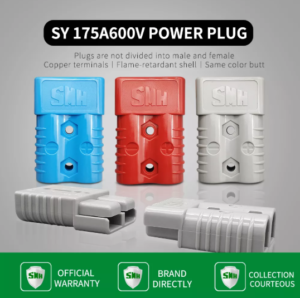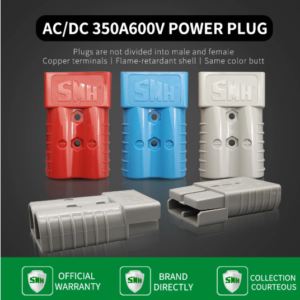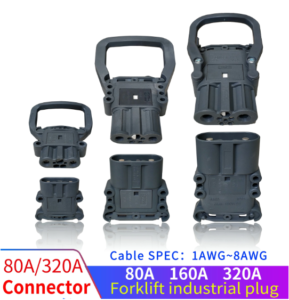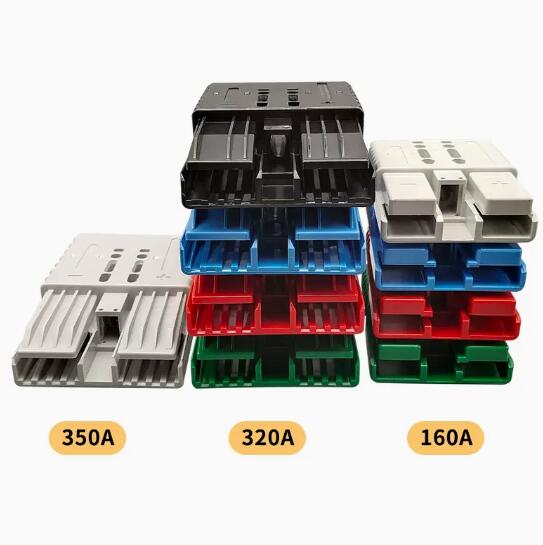Forklift batteries categories and SMH plugs recommended
Forklift batteries are essential for powering electric forklifts, and they come in various categories based on their chemistry, voltage, and application. Here are the main categories:
1. Lead-Acid Batteries
-
Flooded Lead-Acid (FLA):
-
Most common type of forklift battery.
-
Requires regular maintenance (e.g., watering and cleaning).
-
Affordable but heavy and requires proper ventilation.
-
-
Sealed Lead-Acid (SLA):
-
Maintenance-free (no watering required).
-
Leak-proof and safer, but typically more expensive than FLA.
-
Includes Valve-Regulated Lead-Acid (VRLA) batteries.
-
2. Lithium-Ion Batteries
-
Advantages:
-
Lightweight and compact compared to lead-acid.
-
Longer lifespan and faster charging.
-
Maintenance-free and no watering required.
-
Higher energy density and efficiency.
-
-
Disadvantages:
-
Higher upfront cost.
-
Requires specialized charging equipment.
-
-
Common Types:
-
Lithium Iron Phosphate (LiFePO4): Popular for forklifts due to safety and durability.
-
3. Nickel-Based Batteries
-
Nickel-Iron (NiFe):
-
Extremely durable and long-lasting.
-
Resistant to overcharging and deep discharging.
-
Less common due to high cost and lower efficiency.
-
-
Nickel-Cadmium (NiCd):
-
Robust and performs well in extreme temperatures.
-
Less common due to environmental concerns (cadmium is toxic).
-
4. Hydrogen Fuel Cell Batteries
-
Advantages:
-
Zero emissions (only byproduct is water).
-
Fast refueling (similar to filling a gas tank).
-
Consistent power output without performance degradation.
-
-
Disadvantages:
-
High initial cost and limited infrastructure for hydrogen refueling.
-
Requires specialized handling and storage.
-
5. Battery Voltage and Capacity
-
Forklift batteries are categorized by voltage (e.g., 24V, 36V, 48V, 72V, 80V) and capacity (measured in ampere-hours, Ah).
-
The choice depends on the forklift’s power requirements and usage intensity.
6. Application-Based Categories
-
Standard Duty: For light to moderate use (e.g., warehouses).
-
Heavy Duty: For intensive use (e.g., manufacturing, ports).
-
Specialty Batteries: For unique environments (e.g., cold storage, high-temperature areas).
Each type of battery has its pros and cons, and the choice depends on factors like cost, maintenance, operational requirements, and environmental considerations.







